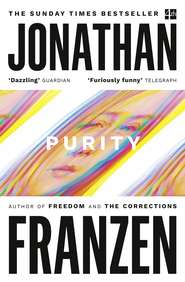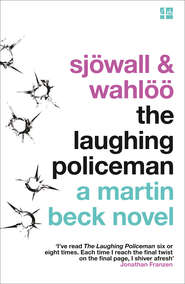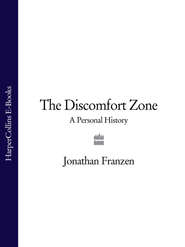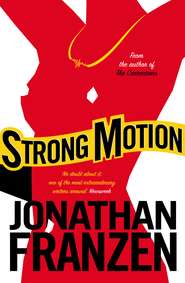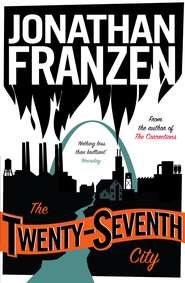По всем вопросам обращайтесь на: info@litportal.ru
(©) 2003-2024.
✖
The Corrections
Автор
Год написания книги
2018
Настройки чтения
Размер шрифта
Высота строк
Поля
“Al, didn’t you say you wanted to see where Chip worked?” Enid shouted.
Alfred shook his head. “There’s no time.”
The baggage carousel circulated nothing.
“Did you take your pill?” Enid said.
“Yes,” Alfred said. He closed his eyes and repeated slowly, “I took my pill. I took my pill. I took my pill.”
“Dr. Hedgpeth has him on a new medication,” Enid explained to Chip, who was quite certain that his father had not, in fact, expressed interest in seeing his office. And since Chip had no association with the Wall Street Journal—the publication to which he made unpaid contributions was the Warren Street Journal: A Monthly of the Transgressive Arts; he’d also very recently completed a screenplay, and he’d been working part-time as a legal proofreader at Bragg Knuter & Speigh for the nearly two years since he’d lost his assistant professorship in Textual Artifacts at D—— College, in Connecticut, as a result of an offense involving a female undergraduate which had fallen just short of the legally actionable and which, though his parents never learned of it, had interrupted the parade of accomplishments that his mother could brag about, back home in St. Jude; he’d told his parents that he’d quit teaching in order to pursue a career in writing, and when, more recently, his mother had pressed him for details, he’d mentioned the Warren Street Journal, the name of which his mother had misheard and instantly begun to trumpet to her friends Esther Root and Bea Meisner and Mary Beth Schumpert, and though Chip in his monthly phone calls home had had many opportunities to disabuse her he’d instead actively fostered the misunderstanding; and here things became rather complex, not only because the Wall Street Journal was available in St. Jude and his mother had never mentioned looking for his work and failing to find it (meaning that some part of her knew perfectly well that he didn’t write for the paper) but also because the author of articles like “Creative Adultery” and “Let Us Now Praise Scuzzy Motels” was conspiring to preserve, in his mother, precisely the kind of illusion that the Warren Street Journal was dedicated to exploding, and he was thirty-nine years old, and he blamed his parents for the person he had become—he was happy when his mother let the subject drop.
“His tremor’s much better,” Enid added in a voice inaudible to Alfred. “The only side effect is that he may hallucinate.”
“That’s quite a side effect,” Chip said.
“Dr. Hedgpeth says that what he has is very mild and almost completely controllable with medication.”
Alfred was surveying the baggage-claim cavern while pale travelers angled for position at the carousel. There was a confusion of tread patterns on the linoleum, gray with the pollutants that the rain had brought down. The light was the color of car sickness. “New York City!” Alfred said.
Enid frowned at Chip’s pants. “Those aren’t leather, are they?”
“Yes.”
“How do you wash them?”
“They’re leather. They’re like a second skin.”
“We have to be at the pier no later than four o’clock,” Enid said.
The carousel coughed up some suitcases.
“Chip, help me,” his father said.
Soon Chip was staggering out into the wind-blown rain with all four of his parents’ bags. Alfred shuffled forward with the jerking momentum of a man who knew there would be trouble if he had to stop and start again. Enid lagged behind, intent on the pain in her hip. She’d put on weight and maybe lost a little height since Chip had last seen her. She’d always been a pretty woman, but to Chip she was so much a personality and so little anything else that even staring straight at her he had no idea what she really looked like.
“What’s that—wrought iron?” Alfred asked him as the taxi line crept forward.
“Yes,” Chip said, touching his ear.
“Looks like an old quarter-inch rivet.”
“Yes.”
“What do you do—crimp that? Hammer it?”
“It’s hammered,” Chip said.
Alfred winced and gave a low, inhaling whistle.
“We’re doing a Luxury Fall Color Cruise,” Enid said when the three of them were in a yellow cab, speeding through Queens. “We sail up to Quebec and then we enjoy the changing leaves all the way back down. Dad so enjoyed the last cruise we were on. Didn’t you, Al? Didn’t you have a good time on that cruise?”
The brick palisades of the East River waterfront were taking an angry beating from the rain. Chip could have wished for a sunny day, a clear view of landmarks and blue water, with nothing to hide. The only colors on the road this morning were the smeared reds of brake lights.
“This is one of the great cities of the world,” Alfred said with emotion.
“How are you feeling these days, Dad,” Chip managed to ask.
“Any better I’d be in heaven, any worse I’d be in hell.”
“We’re excited about your new job,” Enid said.
“One of the great papers in the country,” Alfred said. “The Wall Street Journal.”
“Does anybody smell fish, though?”
“We’re near the ocean,” Chip said.
“No, it’s you.” Enid leaned and buried her face in Chip’s leather sleeve. “Your jacket smells strongly of fish.”
He wrenched free of her. “Mother. Please.”
Chip’s problem was a loss of confidence. Gone were the days when he could afford to épater les bourgeois. Except for his Manhattan apartment and his handsome girlfriend, Julia Vrais, he now had almost nothing to persuade himself that he was a functioning male adult, no accomplishments to compare with those of his brother, Gary, who was a banker and a father of three, or of his sister, Denise, who at the age of thirty-two was the executive chef at a successful new high-end restaurant in Philadelphia. Chip had hoped he might have sold his screenplay by now, but he hadn’t finished a draft until after midnight on Tuesday, and then he’d had to work three fourteen-hour shifts at Bragg Knuter & Speigh to raise cash to pay his August rent and reassure the owner of his apartment (Chip had a sublease) about his September and October rent, and then there was a lunch to be shopped for and an apartment to be cleaned and, finally, sometime before dawn this morning, a long-hoarded Xanax to be swallowed. Meanwhile, nearly a week had gone by without his seeing Julia or speaking to her directly. In response to the many nervous messages he’d left on her voice mail in the last forty-eight hours, asking her to meet him and his parents and Denise at his apartment at noon on Saturday and also, please, if possible, not to mention to his parents that she was married to someone else, Julia had maintained a total phone and e-mail silence from which even a more stable man than Chip might have drawn disturbing conclusions.
It was raining so hard in Manhattan that water was streaming down façades and frothing at the mouths of sewers. Outside his building, on East Ninth Street, Chip took money from Enid and handed it through the cab’s partition, and even as the turbaned driver thanked him he realized the tip was too small. From his own wallet he took two singles and dangled them near the driver’s shoulder.
“That’s enough, that’s enough,” Enid squeaked, reaching for Chip’s wrist. “He already said thank you.”
But the money was gone. Alfred was trying to open the door by pulling on the window crank. “Here, Dad, it’s this one,” Chip said and leaned across him to pop the door.
“How big a tip was that?” Enid asked Chip on the sidewalk, under his building’s marquee, as the driver heaved luggage from the trunk.
“About fifteen percent,” Chip said.
“More like twenty, I’d say,” Enid said.
“Let’s have a fight about this, why don’t we.”
“Twenty percent’s too much, Chip,” Alfred pronounced in a booming voice. “It’s not reasonable.”
“You all have a good day now,” the taxi driver said with no apparent irony.
“A tip is for service and comportment,” Enid said. “If the service and comportment are especially good I might give fifteen percent. But if you automatically tip—”
“I’ve suffered from depression all my life,” Alfred said, or seemed to say.
“Excuse me?” Chip said.
“Depression years changed me. They changed the meaning of a dollar.”






